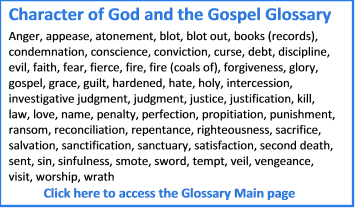Made to be Sin – definition

understanding of the character of God and the Gospel.
“Made Him to be sin” sounds like a strange concept. Here is the key scripture verse:
“For he hath made him (Christ) to be sin for us, who knew no sin; that we might be made the righteousness of God in him.” (2 Cor 5:21)
This page includes the term “sinful flesh.”
Traditional Legal Model – Christ was made or reckoned to be as though He was a sinner, He was counted as guilty and, as such, was punished by God. In God’s reckoning the penalty Christ paid satisfies God’s justice and the demands of the law and means we don’t have to pay the penalty we deserve.
Biblical Healing Model – Christ was (at His incarnation) made to have sinful or fallen flesh, the same flesh we have which could be tempted (so no advantage over us), flesh weakened relative to Adam’s flesh by 4000 years of sin being passed down. In that human nature, by faith, He totally depended on His Father and never once yielded to temptation.
In the traditional understanding, God has to have blood and death in order to grant forgiveness. (in contrast, the Bible indicates that sin is always freely offered – see the glossary definition for forgiveness.) He counted His Son as guilty (made Him to be sin) and because Jesus paid the death penalty we can be forgiven. – someone has to pay. Timothy Jennings has a good explanation for this:
“Generally, there are two views of Christ as our substitute. The first view stems from a legal mindset in which God has enacted, created, imposed, or otherwise sanctioned laws to govern His universe. Intelligent beings are subject to these laws and disobedience is met with an imposed penalty of death. In this view, God must impose the death penalty on the disobedient in order to be “just” and ensure His “law” remains authoritative.” (www.comeandreason.com)
In the thinking of most people, God’s solution for how to save us in light of the above was to make His Son be sin for us and have Him pay the penalty. Again, here is Tim Jennings‘ explanation:
“Those who hold this model view sinful mankind under the legal condemnation of God and without hope of life eternal, unless some way is found to “beat the system.” The way the proponents of this theory solve their dilemma is to claim that Jesus came as their “legal substitute” by living a perfect life and offering Himself to “pay our legal debt” by God “executing punitive justice” upon His Son such that He dies in our place as our substitute for the crimes of sin we committed. After this was done, we were then granted “forgiveness” and life eternal, but only if we accept this payment of Christ in our behalf. Christ gets to live again because He never actually sinned and we get to live forever because He paid our legal debt. This is commonly called the “penal substitution model.” Notice how in this model the system is “rigged” so that both Christ and the sinner get to live eternally, while the claim is maintained that Christ “paid” the “debt” of eternal death. Hmmm…” (www.comeandreason.com)
Can you see the problem with this legal/penal model? It makes God like pagan gods – requiring the payment of blood (death) before He can forgive. That is not the character of the true God, the ever-merciful, freely-forgiving God of love.
What “Made Him to be Sin” Really Means
The Bible gives evidence that the true meaning of “made him to be sin” is that God sent His Son to meet and overcome sin in our condition, our sinful flesh, our flesh that is so prone to putting self first. A careful examination of verses that speak of Christ’s incarnation and nature show this to be so. For example:
“For what the law could not do, in that it was weak through the flesh, God sending his own Son in the likeness of sinful flesh, and for sin, condemned sin in the flesh:” (Rom 8:3)
The “sending … in the likeness of sinful flesh” is equivalent to “made him to be sin for us.” To condemn sin in the flesh (our flesh) is to show that it is not necessary to sin. For a fuller study of this important topic and its connection to the character of God go to: 2 Corinthians 5:21 The Great Exchange?
Return to the Character of God and The Gospel Glossary
